Indian Oil has signed an investment contract worth around 2.7 billion euros
The state-owned Indian Oil Corporation (IOC) signed a corresponding contract for the investment of around 2.7 million euros at the beginning of June. Earlier, IOC announced the expansion of its Koyali crude oil refinery in Vadodara in the state of Gujarat. The refinery’s annual capacity is to be expanded from the current 4.3 million tons to 18 tons. Additional petrochemical plants will also be built for an annual production of 500,000 tons of polypropylene, as well as 235,000 tons of lubricating oil base stock.
Gujarat State Minister Rupani and Minister of State for Petroleum, Gas and Steel Pradhan were present at the signing of a memorandum of understanding between the Gujarat government and Indian Oil. The investment project “LuPech” will serve the production of lubricating oil base materials and polypropylene. Another project “Acrylics / Oxo Alcohol” is intended to produce butyl acrylate. Butyl acrylate is an important component of paints, coatings, adhesives, textile fibers, plasticizers and other similar products. The inclusion of petrochemical feedstocks is part of IOC’s new business strategy to develop other markets outside the oil and refining sector. Following completion of the butyl acrylate plants, IOC is planning additional projects for the production of PVC, styrene, acrylonitrile, PMMA and ethylene oxide.
In addition, Indian Oil Corporation has announced further MoUs for the construction of facilities at Dumad as part of the Koyali-Ahmednagar-Solapur petroleum pipeline and a tanker filling station for Linear Alkylbenzenesulfonic Acids (LABs), a basic ingredient in the detergent industry. Another major infrastructure project includes new gas flares at the Gujarat refinery and a hydrogen fueling station to operate fuel cell vehicles. According to IOC, the filling station will be the first of its kind in India and will operate under the Clean Fuel Campaign. The hydrogen will be used to fuel buses on the Vadodara to Kevadia route.
The Indian oil and gas industry is growing and offers good opportunities for your company to provide services and products there or to produce locally. However, most equipment, plants and facilities must undergo mandatory PESO certification. This is issued by the Petroleum and Explosives Safety Organisation of India. Relevant product groups or components include gas and pressure vessels, valves and fittings, or safety equipment. A complete list can be found on the page about PESO certification mandatory products. The experts at MPR International GmbH are available to answer your questions about PESO certification or other India certifications without obligation for an initial assessment.
If you are interested in understanding what requirements are needed for your product to be imported into India, please do not hesitate to contact us by email or phone at +49-69-271 37 69 261. There is no cost or obligation for us to check for you. If a certification need is discovered we can provide a quotation to make sure that all your certification needs are covered.
If you have any questions you can also use our chat-window in the bottom right. (Please check your browser settings if you can’t see the window)
For more information about PESO certification, please refer to our free brochure “PESO Certification Made Easy“.
Indian cabinet approves subsidy program for manufacturers of photovoltaic systems
The cabinet approved the subsidies amounting to the equivalent of 607 million US dollars in November 2020. The Ministry of Renewable and New Energy (MRNE), whose proposal for domestic manufacturing of photovoltaic modules was recently approved by the government and its subsidies are now available, will take care of the distribution of the funds. The subsidy program aims to build additional manufacturing capacity of 10,000 MW for photovoltaic systems. In particular, solar modules with high efficiency are to be promoted.

In a national plan, existing manufacturers are to be promoted and dependence on imports reduced. According to an article in the Business Standard, Adani Green, Azure Power, Vikram Solar and Waaree Solar are the leading solar module manufacturers in India. Goldman Sachs-backed renewable energy project developer ReNew Power recently announced its entry into solar cell manufacturing.
According to Waaree Group Managing Director Hitesh Doshi, the incentive program, which is tied to production numbers, will make India’s supply of photovoltaic equipment more self-sufficient and less dependent on imports. Although the subsidies will be available exclusively to domestic manufacturers, Doshi also sees an opportunity to export complete systems or components. Government funds are to be disbursed to manufacturers through a transparent application process. The subsidy period is five years and starts with the commissioning of the production facility and the proven sales of the solar modules. The amount of funding is also dependent on the efficiency of the solar modules and the proportion of materials and components from domestic suppliers.
India has set an ambitious target of 175 gigawatts of renewable energy capacity by 2022. This includes 100 GW from solar and 60 GW from wind. However, most of the current solar energy capacity of 32 GW comes from imported photovoltaic systems. Nearly 75 percent of India’s solar power is based on Chinese solar cells and modules. India’s current solar cell production capacity is 3 GW and 5 GW for modules. India awarded its first solar cell manufacturing tender earlier this year. Under this tender, Adani Green and Azure Power will manufacture solar cells and modules with a capacity of 2 GW and 1 GW, respectively.
The MNRE stated in a recent release that preference will be given to domestically produced solar modules in procurement by central government agencies. As part of the country’s current efforts to ban imports from China, the MNRE has also proposed a 20 percent punitive tariff on imports of solar cells and modules.
In India, photovoltaic systems, equipment and components are subject to BIS certification. BIS certification is similar to CE certification but with some important differences. BIS stands for the Bureau of Indian Standards and is India’s national certification body under the umbrella of India’s Ministry of Consumer Affairs, Food & Public Distribution. It is the central awarding body for BIS certification.
Since 2012, the BIS has been gradually expanding the certification catalog and continuously adding additional goods. BIS certification mandatory for many electronic products for industrial and consumer uses. Factory inspections are also required for some products.
If you are interested in understanding what requirements are needed for your product to be imported into India, please do not hesitate to contact us by email or phone at +49-69-271 37 69 261. There is no cost or obligation for us to check for you. If a certification need is discovered we can provide a quotation to make sure that all your certification needs are covered.
If you have any questions you can also use our chat-window in the bottom right. (Please check your browser settings if you can’t see the window)
For more information about BIS certification, please refer to our free brochure “BIS Certification Made Easy“.
Financial technology in India could reach a market value of up to 160 billion US dollars

Indian financial technology companies could more than triple in value over the next five years. With that, experts predict a valuation of between $150 billion and $160 billion in market value by 2025. This is according to a report on a joint study by the Boston Consulting Group and the Federation of Indian Chambers of Commerce and Industry (FICCI). The study examined the growth potential and the need for action for India’s financial technology industry.
According to the report, India is capable of adding between $150 billion and $160 billion in enterprise value to the financial technology sector by 2025. The experts foresee an increase in value creation of approximately US$100 billion. To achieve this goal, Indian financial technology firms will need investments of between $20 billion and $25 billion over the next five years, the report added.
Overall, India has more than 2,100 financial technology companies, 67 percent of which have emerged in the past five years. The current market value is estimated to be between $50 billion and $60 billion. The industry’s growth has been largely spared the negative impact of the Covid 19 pandemic.Since January 2020, India has seen the emergence of three Unicorn startups (more than $1 billion in capital) and five new Soonicorns (more than $500 million in capital).
Globally, mobile apps are becoming increasingly important in finance, whether professional users or end customers. Analysts see growth rates tripling between 2020 and 2027, with India playing an important role in the Asian region. The increasing popularity will also lead to higher demand for mobile devices such as smartphones and tablets in the respective growth markets. In India, numerous telecommunications products must undergo what is known as TEC certification before being sold or placed on the market. TEC is the abbreviation for Telecommunication Engineering Center, and the TEC is the competent authority in India for the certification of such products. More information about the mandatory TEC certification can be obtained without obligation from an expert of MPR International GmbH. We are pleased to answer your questions and to support your company with a TEC certification.
TEC certification has been around many years before 2019 as a voluntary certification, but since April 2019 the certification has been mandatory and every year the Telecommunication Engineering Center (TEC) expands the certification catalog and adds more telecom products. See the list of TEC standards here.If you are interested in understanding what requirements are needed for your product to be imported into India, please do not hesitate to contact us by email or phone at +49-69-271 37 69 261. There is no cost or obligation for us to check for you. If a certification need is discovered we can provide a quotation to make sure that all your certification needs are covered.
For more information about TEC certification, please refer to our free brochure “TEC Certification Made Easy“.
IMF sees India as fastest growing economy in fiscal 2022
The Indian economy is expected to grow by 11.5 percent in the coming fiscal year, according to IMF forecasts. With this, the International Monetary Fund (IMF) predicts a strong recovery for the subcontinent and following the drastic negative impact this year due to the Corona pandemic. As countries next in line to increase economic growth in 2021, the IMF lists China at 8.1 percent, followed by Spain (5.9 percent) and France (5.5 percent).
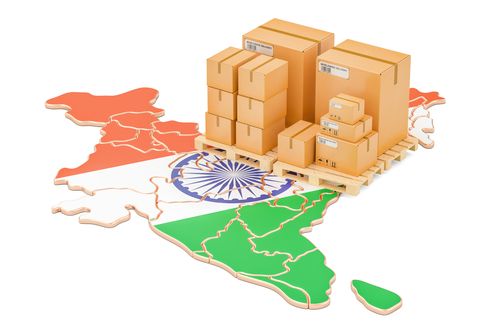
Regarding India, the IMF also revised its estimates for the current year from a decline in economic output of 10.3 percent in the October forecast to just 8 percent as of current data. In 2020, the IMF said China was the only major country to post positive economic growth at 2.3 percent. Next year, the IMF expects the Chinese economy to grow by 5.6 percent. If these current figures are taken into account, India is currently the fastest growing economy in the world.
The IMF’s report, published at the end of January 2021, includes other indicators of the global economy. For example, the IMF estimates that global trade volume will grow by 8 percent this year. The price of oil in 2021 will rise by about 20 percent above the already low level of 2020 but still remain below the average prices of 2019. As trade volumes increase and India becomes more involved in the global trade of goods, product certifications will become increasingly important.
The Indian certification landscape is very difficult to navigate with your different agencies and processes. Do you need or want to know more about AIS/TAC certification for automotive or BIS for electronic and other consumer products, TEC for telecom products, WPC for radio products, or PESO certification for gas or oil industry products? MPR International GmbH – has been assisting market leaders of numerous industries with their certification projects in Asian markets for many years. Thanks to our fast approach and excellent relationships in India, our customers can always meet their deadlines for the start of production or market launch in India. MPR International GmbH will be pleased to advise you regarding India certification and show you the necessary steps without obligation.
If you are interested in understanding what requirements are needed for your product to be imported into India, please do not hesitate to contact us by email or phone at +49-69-271 37 69 261. There is no cost or obligation for us to check for you. If a certification need is discovered we can provide a quotation to make sure that all your certification needs are covered.
If you have any questions you can also use our chat-window in the bottom right. (Please check your browser settings if you can’t see the window)
For more information, please refer to our free brochures:
AIS-Brochure
BIS-Brochure
TEC-Brochure
WPC-Brochure
PESO-Brochure
BMW launches new M340i on the Indian market
BMW unveils another new variant of its 3 Series model lineup, the M340i. Sales of the sporty compact sedan began in India on March 10, 2021. The top model is a BMW 3 Series upgraded by in-house tuner M-Performance. Under the hood works a 3-liter six-cylinder engine that produces 387 hp and 500 Nm of torque. Power is transmitted via an 8-speed automatic transmission and xDrive all-wheel drive. The BMW manages the sprint from 0 to 100 km/h in just 4.4 seconds. Compared to a standard 3-series car, the M340i has received a special exhaust system, stronger brakes and sport suspension. Cosmetic changes include front and rear LED lights, chrome grille, 19-inch aluminum wheels and a revised exhaust trim. The interior is largely identical to a standard 2021 BMW 3-series, which means a 10.25-inch touchscreen, iDrive system, 3-zone automatic climate control, parking sensors and a digital dashboard in the center. The M variant differs only by various aluminum applications in the interior, which are intended to emphasize the sporty character of the vehicle.
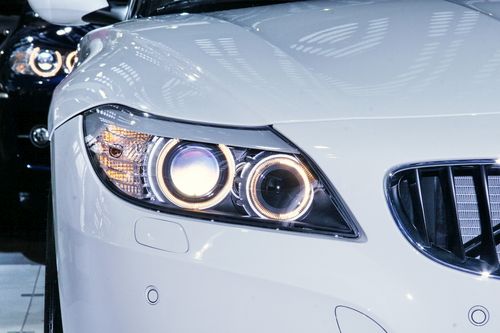
In addition to the release of the new top model in BMW’s 3 Series, there have been other adjustments for the Indian market. These were made due to the introduction of the GT variants last month. For instance, the sole diesel 320d is now only available in the luxury trim. The gasoline 330i continues to be offered in Sport and M trim levels. Even though the Indian market remains attractive for luxury vehicles from foreign manufacturers, BMW saw a 31.5 percent drop in January over the past year. According to BMW India, the decline is due to the Covid 19 pandemic and related delivery issues. In 2020, BMW managed to sell a total of 6,604 vehicles, of which 6,092 were from the main brand and 512 from the Mini brand. Meanwhile, the BMW Motorcycles division saw a huge increase, with 2,563 two-wheelers sold last year. Most in demand were the touring models R1250 GS/GSA and F750/850 GS, which accounted for 80 percent of all sales.
Cars and two-wheelers and their components must be certified in India according to AIS guidelines. AIS stands for Automotive Industry Standards, the technical automotive standards for India. MPR International GmbH – India Certification will be pleased to assist you with AIS certification and is also available to answer any questions you may have.
AIS stands for Automotive Industry Standards, the technical automotive standards for India, while TAC stands for Type Approval Certificate. This kind of automotive product certifiation is conducted by authorities like the International Center for Automotive Technology (iCAT).
Depending on the product category, there are different certification steps. We will be happy to advise you on certification in India like AIS, BIS, WPC, TEC or PESO and are always available to answer your questions.
Please do not hesitate to contact us for further details and consultation. You can contact us via e-mail, or call us (UK: +44 2071931135, Rest of Europe: +49 69 2713769261, US: +1 773 654-2673).
If you have any questions you can also use our chat-window in the bottom right. (Please check your browser settings if you can’t see the window)
You can also check out our free AIS-Brochure, which can be downloaded right here as a PDF file.
The Indian market for smartwatches and other wearables is growing in the triple digits
Analysts at IDC, a market intelligence provider, recently released these figures in a report. For example, the market for smartwatches, wristbands, earphones and other wearable electronics, known as wearables, grew 144.3 percent year-over-year. IDC said 36.4 million devices were shipped. India was the only country in the top 20 with triple-digit growth and remains the world’s third-largest market, the report said. IDC estimates that growth was driven by the rising popularity of earbuds and consumers’ shift from traditional watches to smartwatches and wristbands. Both product segments recorded their highest shipments to date in 2020.
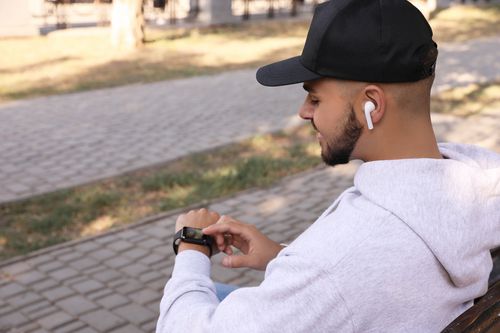
Jaipal Singh, IDC India associate research manager (client devices), said last year saw a major shift from wired audio devices to wireless variants. As a result, he expects the market to move toward high-end or feature-rich devices this year. In the case of smartwatches, prices have now fallen to the point where this is no longer a barrier to purchase, Singh added. The design of the new watches is also more appealing to most customers than conventional watches, and vendors will shift their offerings and portfolio accordingly in the coming months, Singh said.
The earbud product category has grown more than threefold in the past year, with 30.4 million units sold. In addition to affordable prices, increased usage outside of entertainment purposes such as video conferencing or distance learning also contributed to the growth. Particularly in demand for earphones were so-called TWS (true wireless stereo) devices, which connect to the music source via Bluetooth and the left and right audio channels produce separate, high-fidelity stereo sound on the earphones without delay. Of all wearables, audio accounted for 86.3 percent in 2020. Indian manufacturer Boat is the clear market leader with more than two-thirds of all headphones and earbuds shipped. Samsung, including its JBL, Harman Kardon and Infinity sub-brands, is in second place and had 14.5 percent market share last year.
In smartwatches, the number of units shipped exceeded 1 million for the first time in the third quarter of 2020. This compares to only 300,000 devices shipped in the same quarter last year. The most popular models of smartwatches in India were the Noise Colorfit pro-2, Realme watch, Apple watch 6 and Amazfit watches. The growing popularity of smartwatches could have an impact on wristband sales, according to IDC analysts. Their shipments fell 34.3 percent year-on-year to 3.3 million devices after peaking in 2019.
Consumer electronics devices such as smartwatches and earbuds require BIS-CRS certification to import or market them in India. MPR International GmbH – India Certification will be pleased to assist you with BIS-CRS certification and is also available to answer any questions you may have.
If you are interested in understanding what requirements are needed for your product to be imported into India, please do not hesitate to contact us by email or phone at +49-69-271 37 69 261. There is no cost or obligation for us to check for you. If a certification need is discovered we can provide a quotation to make sure that all your certification needs are covered.
If you have any questions you can also use our chat-window in the bottom right. (Please check your browser settings if you can’t see the window)
For more information about BIS certification, please refer to our free brochure “BIS Certification Made Easy“.
Car sales in India rise sharply
Due to rising consumer confidence as well as an increased need for a personal mode of transportation in light of the Covid 19 pandemic, passenger car sales in India increased dramatically in February 2021. According to published data from the Indian Society of Automobile Manufacturers (SIAM), sales of passenger cars rose 18 percent to 281,380 vehicles. The figures do not include sales by Tata Motors, as they do no longer submit monthly sales figures to the association. Sales of two-wheelers rose 10 percent to a total of 1,426,865 units, of which 464,744 were scooters and 910,323 were motorcycles. Sales of three-wheelers, on the other hand, fell 34 percent to 27,331 units.
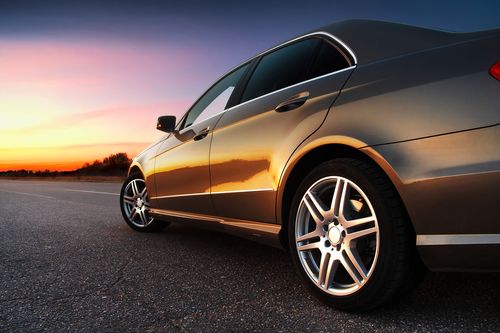
India’s largest automaker, Maruti Suzuki India (MSI), also benefited from rising demand last year. MSI’s models ranked in the top five of the best-selling new cars in India for the fourth consecutive year; in detail, the best-sellers were the Swift, Baleno, Wagon R, Alto and Dzire. The Suzuki Swift compact car ranked first with 172,000 units, followed by the compact Baleno with 163,000. The Wagon R city car ranked third with 160,000 units, while the Alto and Dzire ranked fourth and fifth with 159,000 and 128,000 units sold, respectively. Next after MSI in terms of market share is Hyundai; Tata, Kia and Mahindra are the other top 5 manufacturers.
AIS stands for Automotive Industry Standards, the technical automotive standards for India, while TAC stands for Type Approval Certificate. This kind of automotive product certifiation is conducted by authorities like the International Center for Automotive Technology (iCAT).
Depending on the product category, there are different certification steps. We will be happy to advise you on certification in India like AIS, BIS, WPC, TEC or PESO and are always available to answer your questions.
Please do not hesitate to contact us for further details and consultation. You can contact us via e-mail, or call us (UK: +44 2071931135, Rest of Europe: +49 69 2713769261, US: +1 773 654-2673).
If you have any questions you can also use our chat-window in the bottom right. (Please check your browser settings if you can’t see the window)
You can also check out our free AIS-Brochure, which can be downloaded right here as a PDF file.
Home entertainment steadily on the rise
Amazon’s Fire TV streaming device reported a doubling of media consumption by Indian customers during the past year. Main content in demand was movies, cricket, online games and music. On average, customers consumed three hours of Fire TV and Disney+ Hotstar content daily. Sales of Fire TV in metropolitan areas increased steadily last year. In this regard, Greater Delhi leads followed by Hyderabad, Pune, Chennai, Kolkata and Ahmedabad. Although the company did not give specific sales figures for India, the number of globally active Fire TV customers exceeded 50 million. Amazon released these figures in a report in late January 2021.
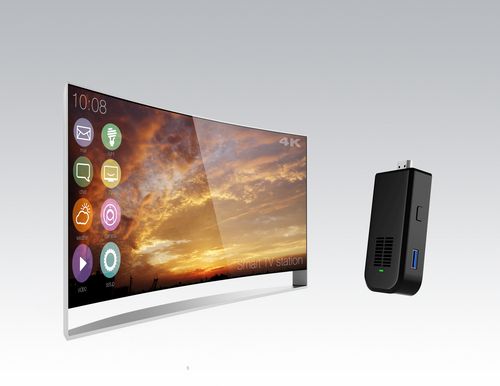
Parag Gupta, Amazon Devices managing director India, said through voice control with Alexa, it has become very easy to find your desired content. Over the past year, a wide range of Fire TV content has been very well received by viewers, including entertainment shows, in-house productions, fitness videos, games and sports broadcasts. In particular, Bollywood movies and Indian soap operas were at the top of Amazon Prime Video, which can be watched via the Fire TV streaming device.
In addition, customers took a liking to games on their Fire TV devices. During the lockdown, time spent playing games doubled, and even after the lockdown ended, consumption is still up 65 percent, according to the Amazon report. Voice search with Alexa increased 70 percent from 2019 to 2020. In addition to entertainment, customers were three times more likely to use fitness and cooking content from Fire TV in 2020 than the previous year. Consumer electronics devices such as the Fire TV Stick require BIS-CRS certification to import or market them in India. MPR International GmbH – India Certification will be pleased to assist you with BIS-CRS certification and is also available to answer any questions you may have.
Since 2012, the BIS has been gradually expanding the certification catalog and continuously adding additional goods. BIS certification mandatory for many electronic products for industrial and consumer uses. Factory inspections are also required for some products.
If you are interested in understanding what requirements are needed for your product to be imported into India, please do not hesitate to contact us by email or phone at +49-69-271 37 69 261. There is no cost or obligation for us to check for you. If a certification need is discovered we can provide a quotation to make sure that all your certification needs are covered.
If you have any questions you can also use our chat-window in the bottom right. (Please check your browser settings if you can’t see the window)
For more information about BIS certification, please refer to our free brochure “BIS Certification Made Easy“.
Motorcycle sales up 8 percent in January
In January 2021, Honda Motorcycle & Scooter India (HMSI) reported an 8 percent increase in their sales figures to a total of 437,183 units. In the same month last year, 403,406 units were sold. Domestic sales totaled 416,716 units in January, up from 374,091 a year earlier. HMSI sales manager Guleria said his company expects double-digit growth this year, making it the top performer in the industry.
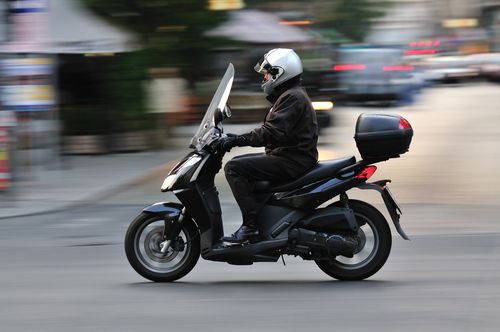
Guleria anticipates an upswing in the fourth quarter of 2021 for a variety of reasons. For one, universities and colleges will reopen, and for another, public life will return to normal due to the Covid-19 vaccination, increasing the demand for two-wheelers to commute in urban areas. Guleria also brought up that the Indian government has announced numerous subsidies for 2021 that will directly or indirectly support the two-wheeler and automotive industries. Among other things, the government has allocated additional funds to develop road infrastructure, launched a program to improve healthcare, increased the price of procuring agricultural produce from farmers and introduced a scrappage scheme. Honda will also unveil a new two-wheeler model this month, which sales manager Guleria says has very good potential to become a big seller.
In India, certification is mandatory for introducing parts or components for two-wheelers to the market. AIS stands for Automotive Industry Standards, the technical automotive standards for India, while TAC stands for Type Approval Certificate. This kind of automotive product certifiation is conducted by authorities like the International Center for Automotive Technology (iCAT).
Depending on the product category, there are different certification steps. We will be happy to advise you on certification in India like AIS, BIS, WPC, TEC or PESO and are always available to answer your questions.
Please do not hesitate to contact us for further details and consultation. You can contact us via e-mail, or call us (UK: +44 2071931135, Rest of Europe: +49 69 2713769261, US: +1 773 654-2673).
If you have any questions you can also use our chat-window in the bottom right. (Please check your browser settings if you can’t see the window)
You can also check out our free AIS-Brochure, which can be downloaded right here as a PDF file.
ICAT, India & MPR International, Germany signed cooperation Memorandum of Understanding (MoU)
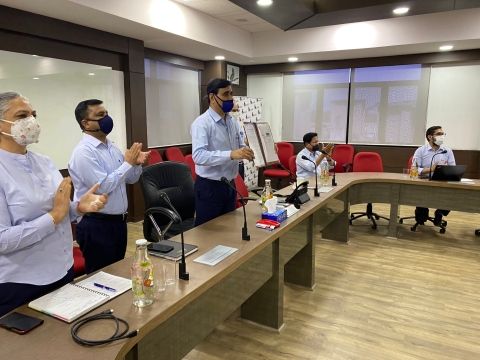
The “International Centre for Automotive Technology”, also known as ICAT, is the leading Indian Testing & Certification Agency for CMVR certification (AIS/TAC) in the Automotive Sector in India. ICAT also regularly conducts tests of automotive & non-automotive components required for Bureau of Indian Standards (BIS) certification.
On April 7, 2021 ICAT, India and MPR International GmbH signed a joint cooperation MoU. The signing ceremony was held via videoconference due to Covid-19 travels restrictions. ICAT’s Director, Mr. Dinesh Tyagi and Managing Director of MPR International GmbH, Mr. Julian Busch signed the MoU. The MoU will result in more cooperation and mutual support in handling of the certification business. MPR International is now an official partner of the Indian Testing & Certification Agency, ICAT.
Together, ICAT and MPR International GmbH will work to expand their existing services for the certification of automotive products in India and thus extend the overall scope of services for their customers with the common goal to provide a framework for the future advancement of automotive technology.
ICAT’s Director Mr. Dinesh Tyagi and his colleagues during the MoU signing ceremony.
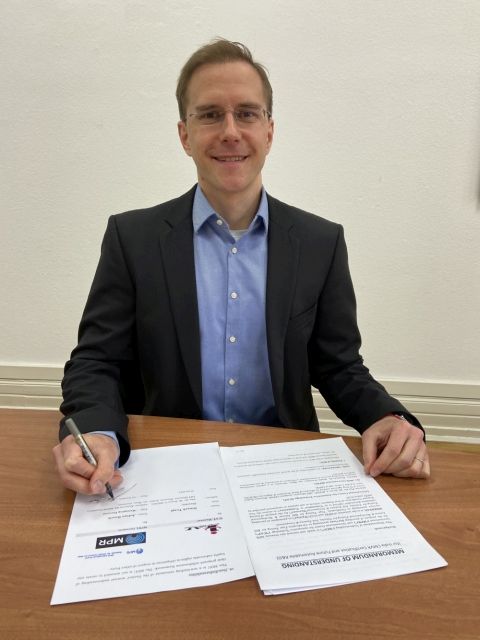
Managing Director Mr. Julian Busch of MPR International GmbH during the MoU signing ceremony.
Since 2006, ICAT (https://www.icat.in/) is authorized by Ministry of Road Transport & Highways (MoRTH), Govt. of India to conduct automotive certifications. According to the Central Motor Vehicles Rules (CMVR), ICAT is authorized to issue approvals of vehicles and their components as per respective notified Indian Standards. In addition, ICAT is also authorized to carry out the testing and approval of other products such as generators, non-automotive products like IT Products, General Lightings, White Goods, Architecture Glasses etc.
ICAT offers high-quality and comprehensive services for International clients also and ensures all quality standards for approvals.
MPR International GmbH supports customers world-wide with various certifications for the Asian market. For India, these currently include AIS/TAC, BIS, WPC, TEC and PESO certifications. AIS certification is required for automotive components, while electronic components require BIS certification, WPC for wireless products, TEC for telecommunications products and PESO in the petroleum and explosive and safety areas.
MPR enables its customers to access the Indian market through its versatile certification services for all product areas. MPR has gained particular expertise in the Automotive, Electrical, Mechanical Engineering, Telecommunications and IT Sectors.
Since 2019, India has identified more and more products, requiring mandatory certification. At the same time, more companies are looking to sell products in the Indian market. Due to the complex certification process and new regulations many companies have questions and concerns on how to enter into the market? With closer cooperation between ICAT and MPR, we offer our customers a simplified solution in the certification process.



